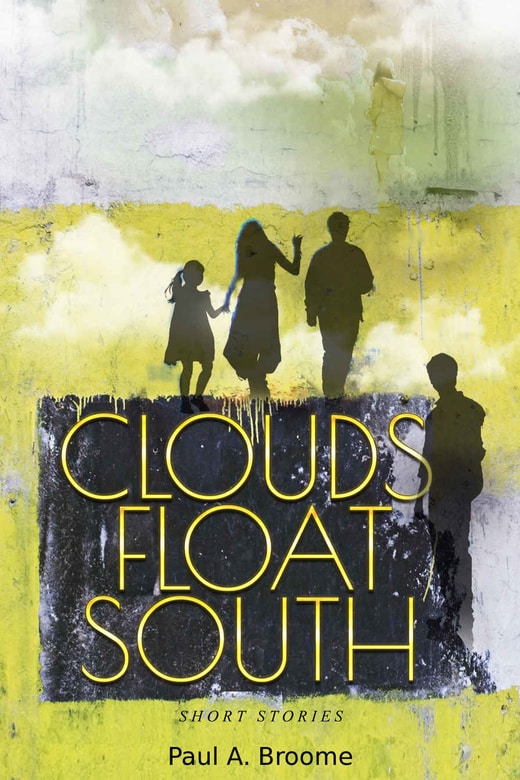
Delicately skimming through two decades of life for one Tennessee family, Clouds Float South by Paul A. Broome is a subtly beautiful collection of interlinked stories about growing up and choosing who to become.
The broad time arc of this collection gives readers a piercing look into the Smith family as a whole, specifically via the experiences and dynamic youth of Alan, the narrator of these stories. His narrative voice also matures as the stories progress, from simplistic descriptions and observations to more lyrical, nuanced, and meaningful commentaries from his clever point of view. This seamless growth of the main character over time makes the collection increasingly engaging with each passing story, and adds originality to the format.
Though each of these tales can stand alone, there are overlapping characters and lessons learned, supporting the coming-of-age mood that defines this collection. The premise and moral foundation of these pieces may seem simple, but the issues being addressed are serious – acceptance, equality, self-confidence, grief, trauma, pride, patriotism, and young love. Within a slow and charming southern context, the author artfully explores these timeless themes through the eyes of a headstrong protagonist.
The bird massacre of “Walter Lee” dives into veterans returning from war, and the strange relationships to violence and “normality” that can develop after trauma. Watching Alan, Violet, and Dwayne explore the ideas of mercy and retribution is a reminder that children pay attention, and may learn to walk in dangerous footsteps if they don’t understand the gravity of life and death. “Mama Fox” is a quiet and curious story, one of blood, family, spirits, uncertain origins, and the cultural history we may lose as we age, without ever losing our identity.
There is sometimes a lack of character development, despite the intensity of the themes being discussed. When characters are put into contentious or controversial moments, such as Alan’s stumbling romantic role in “The Kiss,” it would be enlightening to hear how those characters are feeling in a given moment, rather than the author simply presenting the context and ostensibly telling readers how they should feel about the moment at hand. That story in particular is packed with symbolic language, the curious play of children, and the hard lessons learned through innocence, and Broome brings the theme back around to the adults too, with Alan’s mother hiding her own secrets, but the story could delve even deeper than it already does.
The colloquial nature of the prose is striking, but there is some inconsistency in dialect, with certain lines being heavily influenced, while others by the same character fail to take on the same affectation. There are also basic grammatical errors, such as misspelled character names and inaccurate punctuation that should have been caught by a keen-eyed editor before this book was published. On a more stylistic note, the short and choppy sentences are jarring in some passages, and the declarative nature of the writing can feel emotionally cold, but most of the prose is revealing and dynamic.
As a whole, Broome has captured the style and soul of another era, and tenderly crafts a family portrait that can teach every reader a bit more about living well.
Book Links
STAR RATING
Design
Content
Editing
Get an Editorial Review | Get Amazon Sales & Reviews | Get Edited | Get Beta Readers | Enter the SPR Book Awards | Other Marketing Services























Leave A Comment